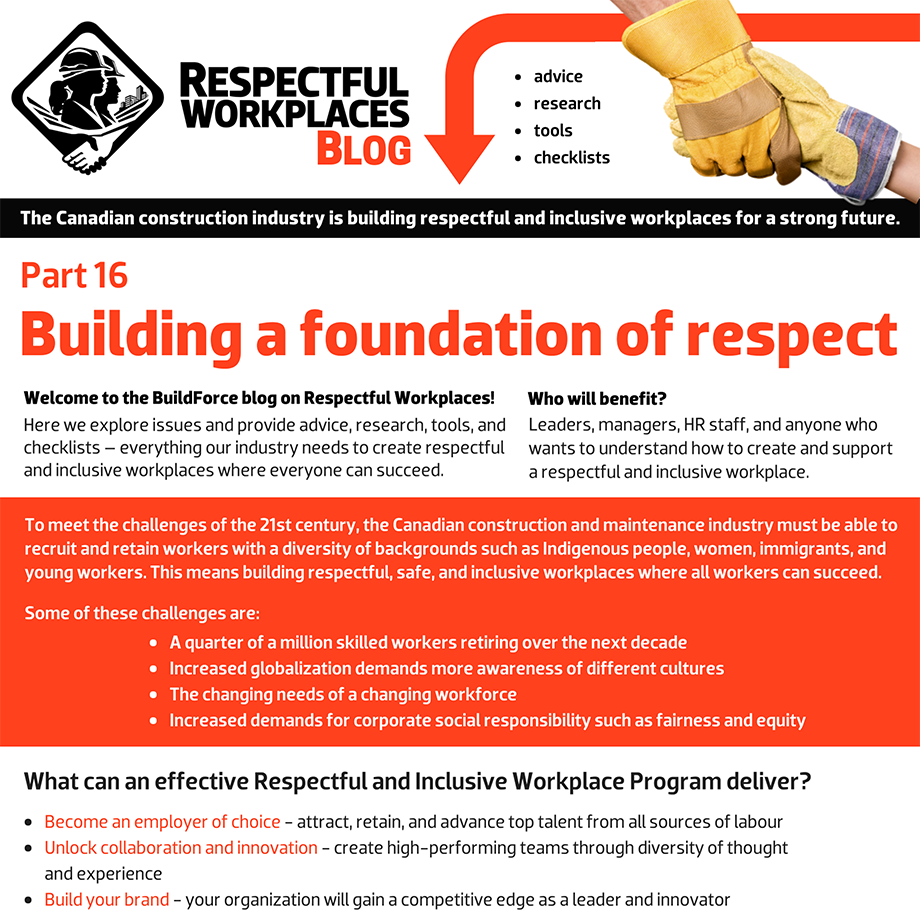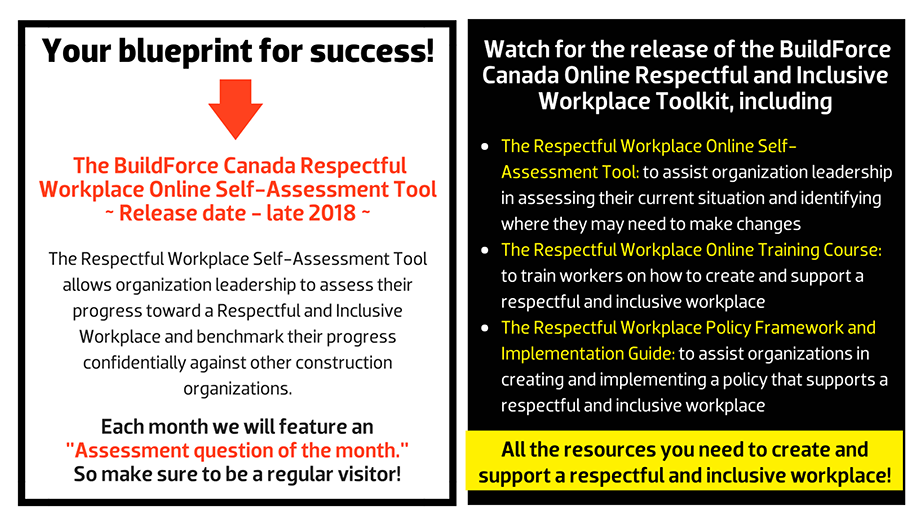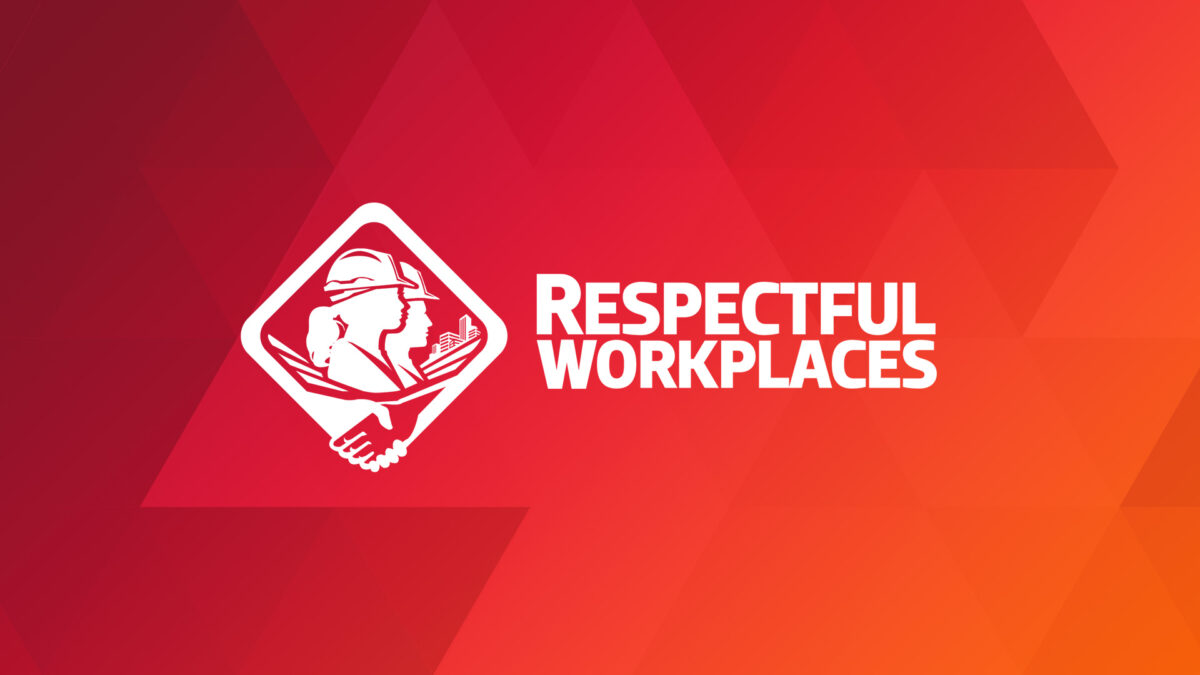

ASSESSMENT QUESTION OF THE MONTH:
Does your organization commit the resources necessary for effective implementation of your respectful and inclusive workplace initiative?
A major study in the United States that surveyed a large sample of private-sector organizations found that allocating resources to “responsibility structures,” for example, diversity (respectful and inclusive workplace) plans (see Blog #13), committees, and staff positions, is associated with significantly higher representation of people with different genders, backgrounds, and circumstances in management.
Although the organizations in this study were medium- to large-sized, smaller organizations with fewer resources can still implement these success factors:
- Staff positions responsible for respectful and inclusive workplace initiatives can be assigned as partial roles combined with other human resources or personnel administration responsibilities.
- Committees to support respectful and inclusive workplace initiatives can be made up of champions that already exist in your organization. Their effectiveness can be maximized by rewarding their work through recognition or special training.




Resources:
- BuildForce Canada. Online Respectful & Inclusive WorkplaceToolkit. Release Date: late 2018.
- Canadian Institute of Diversity and Inclusion. Diversity Perspectives: Diversity Staffing Structures. July 10, 2013.
- Deloitte. The Deloitte Millennial Survey 2017. Pages 15-16. See www2.deloitte.com/global/en/pages/about-deloitte/articles/millennialsurvey.html. Accessed April 26, 2018.
- Kalev, Alexandra, Frank Dobbin and Erin Kelly. Best Practices or Best Guesses? Assessing the Efficacy of Corporate Affirmative Action and Diversity Policies. American Sociological Review. 2006. Vol. 71 (August: 589-617).
- United Nations. Transforming our world: the 2030 Agenda for Sustainable Development. See https://sustainabledevelopment.un.org/post2015/transformingourworld. Accessed on April 26, 2018.


This project has been funded by Status of Women Canada.

Respectful and Inclusive Workplaces
